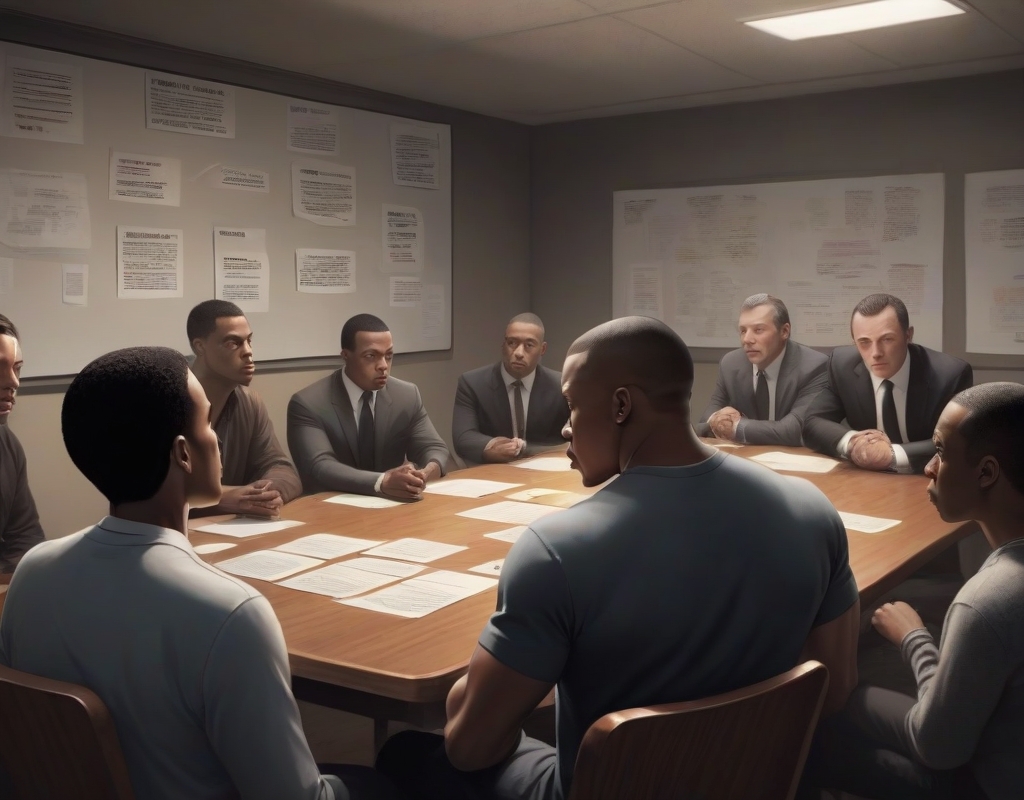In a recent unfolding of events, Dr. Dre, a revered figure in the music industry, has raised eyebrows and spurred vigorous discussions surrounding the themes of racism, cultural sensitivity, and the impact of language. This discourse was triggered by Dr. Dre’s contentious allegations against his former therapist, whom he accused of racist behaviors, coupled with his remarks minimizing the offensive nature of the term ‘bitch,’ which he claimed wasn’t genuinely threatening.
These polarizing comments provide a springboard into broader conversations about the potency of language and the repercussions of racial insensitivity, especially coming from a high-profile individual like Dr. Dre. As we delve deeper, we uncover various layers of this complex issue, including historical, psychological, and societal dimensions.
### Incident Overview
The controversy came to the forefront when Dr. Dre openly criticized his previous therapist, branding them a racist. Concurrently, he trivialized the derogative term ‘bitch,’ sparking a diverse range of reactions and bringing forth an examination of attitudes toward language and its contextual interpretations. This sequence of events has captured the attention of both media and the public, propelling numerous individuals to dissect Dre’s intentions and the implications of his statements.
### Societal and Cultural Background
In the modern social climate, where racial and mental health issues are increasingly spotlighted, comments such as those made by Dr. Dre resonate deeply. They intersect with ongoing debates about how language shapes perceptions and can perpetuate harm, particularly within the context of racial and gender-based disparities. These discussions are part of a larger societal commitment to confronting longstanding prejudices and advocating for a more equitable dialogue in public discourse.
### Expert Perspectives
Expert insights shed light on the nuances of this situation. Dr. Lisa Feldman Barrett, a psychologist, suggests that language transcends mere words, significantly impacting one’s psychological landscape and interactions. Conversely, sociologist Dr. Michael Eric Dyson emphasizes that racial slurs carry a daunting weight, shaped by historical and systemic oppression, marking them distinct and far more damaging than other derogatory terms.
This analytical framework helps in understanding the deeper cultural and emotional reverberations of such language, emphasizing why dismissive attitudes can be especially controversial if presented by influential figures.
### Community and Public Engagement
The public’s response to Dr. Dre’s statements has varied widely, with some defending his freedom of expression, while others criticize his apparent underestimation of the terms’ offensive potentials. Social media platforms have become arenas for debate, reflecting a society grappling with the balance between free speech and responsible communication.
Prominent voices have also chimed in; filmmaker Ava DuVernay, for instance, highlighted the dual nature of words as tools for healing or harm, stressing the importance of mindful communication, especially on pivotal issues like racism.
### Implications and Forward-Looking Considerations
This episode is emblematic of larger cultural shifts toward scrutinizing the impact of linguistic choices and their power dynamics. It invites introspection about the role of language in shaping societal norms and individual identities. For mental health professionals, particularly those working with celebrities, the incident underscores the importance of sensitivity and understanding in client interactions, given the possible public ramifications.
Looking to the future, the music industry, and cultural producers more broadly, may face renewed scrutiny regarding the narratives they propagate through their art. This scenario encourages artists and stakeholders to reflect deeply on the messages they convey and the potential societal effects.
### Conclusion
Ultimately, Dr. Dre’s controversy serves as a poignant reminder of the complex interplay between language, identity, and societal values. It highlights the need for ongoing education, openness to dialogue, and a commitment to empathy in public and private exchanges. As the discourse continues to evolve, it holds the promise of fostering a deeper, more inclusive understanding of the ways in which our words can shape the world around us. Engaging with these issues critically and compassionately is crucial for cultivating a more just and respectful society. Through such engaged and thoughtful discussions, we can aspire to enhance the collective discourse and promote a more empathetic understanding of each other’s experiences and perspectives.




